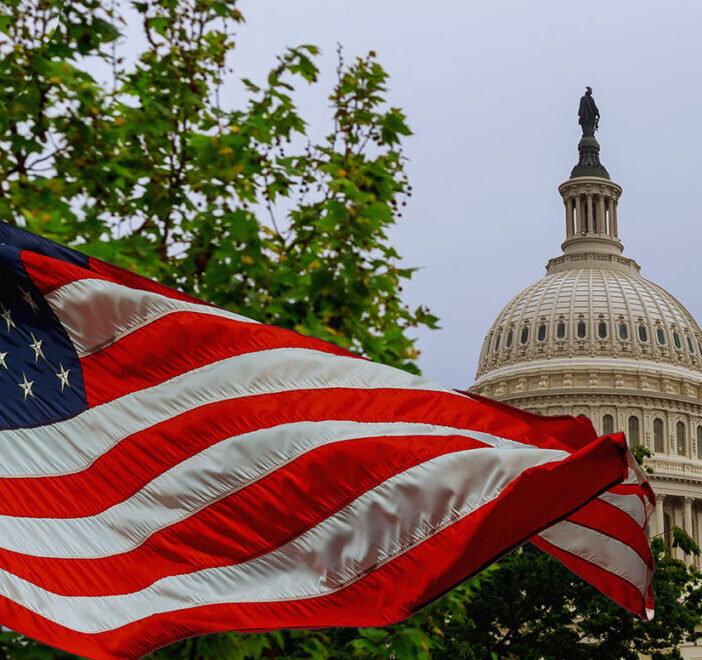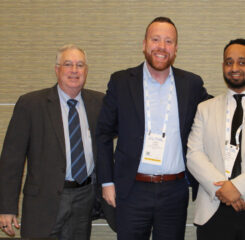Music Licensing 101: What Members Should Know
The Hawaiian theme dinner with live performers swaying to luau music. A 100th birthday party. The annual employee holiday gala. Hold music on the main line; songs from the 40s and 50s played during a reminiscence activity in memory care. There are many examples of fun, engaging and poignant events in the daily life of an LPC where music and the creative arts take center stage. But then the question emerges: do we need a license for that? Are we infringing on copyright law – and can we be fined or sued? Let’s explore these questions, below.
The Origin: U.S. Copyright Law
As defined by the U.S. Copyright Office, “copyright is a type of intellectual property that protects original works of authorship as soon as an author fixes the work in a tangible form of expression.” Essentially, copyright law protects any original artistic work as soon as it is created, and its author and owner is entitled to royalties if that work is replicated, reproduced or copied. People who write music are also protected by what is called the “performing right;” this is defined as the exclusive right to perform their music or to authorize others to do so. Through this right, composers of music have a mechanism to ensure fair compensation for the performance of their works, every time that work is performed in public. Generally, the copyright lasts for the lifetime of the author, plus an additional seventy years after the author’s death. After that time, the work moves into what is called the ‘public domain,’ and the author’s rights and royalty entitlements expire.
People who write music are protected by what is called the “performing right;” this is defined as the exclusive right to perform their music or to authorize others to do so. Through this right, composers of music have a mechanism to ensure fair compensation for the performance of their works, every time that work is performed in public.
What Constitutes a “Public Performance?”
Under copyright law, “performance” means both the live playing of music, but also refers to playing the music on a device or otherwise sharing the music publicly. Except when performed for a small group of family or friends, music that is played in any public space is required to be done so under a license; the type of license depends on the vehicle, mechanism, and medium through which the music is performed. This includes performances that are displayed publicly through the radio, TV, telephone ‘hold’ music, or the internet. As such, most music performance or usage in an LPC setting would necessitate a performance music license. However, the act of recording music that is performed on a CD, tape, or as part of a video requires other licenses called mechanical and synchronization licenses. This should be kept in mind when creating marketing or community life videos that incorporate music. Such videos are growing in popularity among LPCs, and LeadingAge members should verify that production vendors are familiar with and will comply with all music licensing requirements.
The Performance Music License – An Explanation
Essentially, every time a musical composition is performed – whether live or recorded – the composer is entitled to collect royalty payments for the use of their work (there are a few exceptions to this that are discussed below but most, unfortunately, will not apply). Performance music licenses are granted by performance rights organizations (PROs). Pursuant to these licenses, the PROs collect fees in exchange for permission to legally perform certain music in public, online or by radio transmission. The fees collected are then used to pay the artist for the use of their work.
The three largest PROs are ASCAP, BMI, and SESAC. Each PRO has a different catalog of musical compositions that they are permitted to license; it is important that any organization seeking a license fully understand what works you are licensed to play or perform with any given PRO. It may be of little value to your organization to purchase one PRO license when most of the music you would use is covered by another PRO.
Many businesses or organizations elect to subscribe to all three PROs, just to ensure that any gaps in licensure are minimized; the licensure contract with each PRO is individually negotiated and determined by several factors, including the size of your location, how the music is played or performed, what type of business it is, and so forth. From there, the fees are determined; license fees can range from $300 to $9,000 annually.
Businesses that commonly hold performance music licenses include restaurants, sporting venues, gyms, shopping malls, radio stations, airlines, hotels, websites – anywhere that music is performed or reproduced for more than a small gathering of family and friends. Some businesses may contract only with background music services such as Mood Media (Muzak) or SiriusXM for Business. LPC and other communities should do a careful review of music usage to determine whether PRO licensing is necessary, or whether your music need could be met with a background music provider that charges a subscription fee and provides licensed music.
Organizations and businesses that play or perform music in public and without a license (provided they do not meet the license requirement exceptions in copyright law, below) are technically engaging in copyright infringement, and may be subject to lawsuits by the PROs.
License Requirement Exceptions
U.S. copyright law does provide some exceptions to the exclusive rights of music owners to receive royalties for their music. While these are briefly summarized, below, this is not an exhaustive list; each organization should carefully review their exception eligibility independently and seek the advice of legal counsel, where applicable.
The following occasions are not considered ‘infringement of copyright law:
· Performing or displaying a work in a face-to-face instructional setting of a not-for-profit educational institution;
· Performing a non-dramatic literary or musical work of a religious nature during services at a place of worship or other religious assembly;
· Performing a non-dramatic literary or musical work (other than by broadcast TV or internet) IF:
o There is no commercial advantage to the organization;
o The performers, promoters and organizers are not receiving compensation for the performance;
o There is no admission charge;
o The proceeds (after paying the costs of the performance) go to a not-for-profit or charitable purpose and not private financial gain (with some exceptions not listed here;)
· Watching a performance of a non-dramatic literary or musical work on a single television or other screen commonly used in a private home, provided that an admission fee is not charged and it is not broadcasted to the public;
· Performing a nondramatic musical work by a governmental body or a nonprofit agricultural or horticultural organization, in the course of an annual agricultural or horticultural fair or exhibition conducted by such body or organization;
· Performing a nondramatic musical work at a business where copies of that work are sold, for the sole purpose of promoting the sale of that same work;
· Performing or reproducing a nondramatic literary work for a blind, deaf or otherwise handicapped person who cannot read or hear the work otherwise, and there is no “commercial advantage” gained from the performance;
· Performing a nondramatic literary or musical work for the sole enjoyment of a nonprofit veterans or fraternal organization, provided that the general public is not invited, and any proceeds are used for a charitable purpose;
· Recording a short clip from a movie that is played in a private home, so long as the clip is “imperceptible” and is, in essence, a distinct parody of the original movie;
· The secondary transmission of a performance over an in-house TV broadcast system that is designed to receive and relay transmission through an FCC approved device for private viewing in hotel rooms, private apartments, or similar establishments.
In Conclusion
Navigating copyright law and the performance music license requirements is nuanced and requires careful consideration by any organization that broadcasts or hosts performances of music and other nondramatic literary works. While it is relatively rare that aging services providers are investigated or fined for copyright infractions, other businesses certainly have faced serious penalties for hosting performances of or playing music without proper licensure. Members are encouraged to review their practices and consult with legal counsel to determine whether seeking a performance music license is a prudent risk management measure that is appropriate for their organization.

Most Recommended
October 15, 2025
 Shutdown Week Three: Impact of Ongoing Closure on Affordable Housing
Shutdown Week Three: Impact of Ongoing Closure on Affordable Housing
December 10, 2025
Fiscal Year (FY) Funding 2026
October 07, 2025
Immigrant Workforce Matching Program Brings Workforce Relief
Recently Added
December 17, 2025
 Colleagues on the Move, December 17, 2025
Colleagues on the Move, December 17, 2025
December 16, 2025



